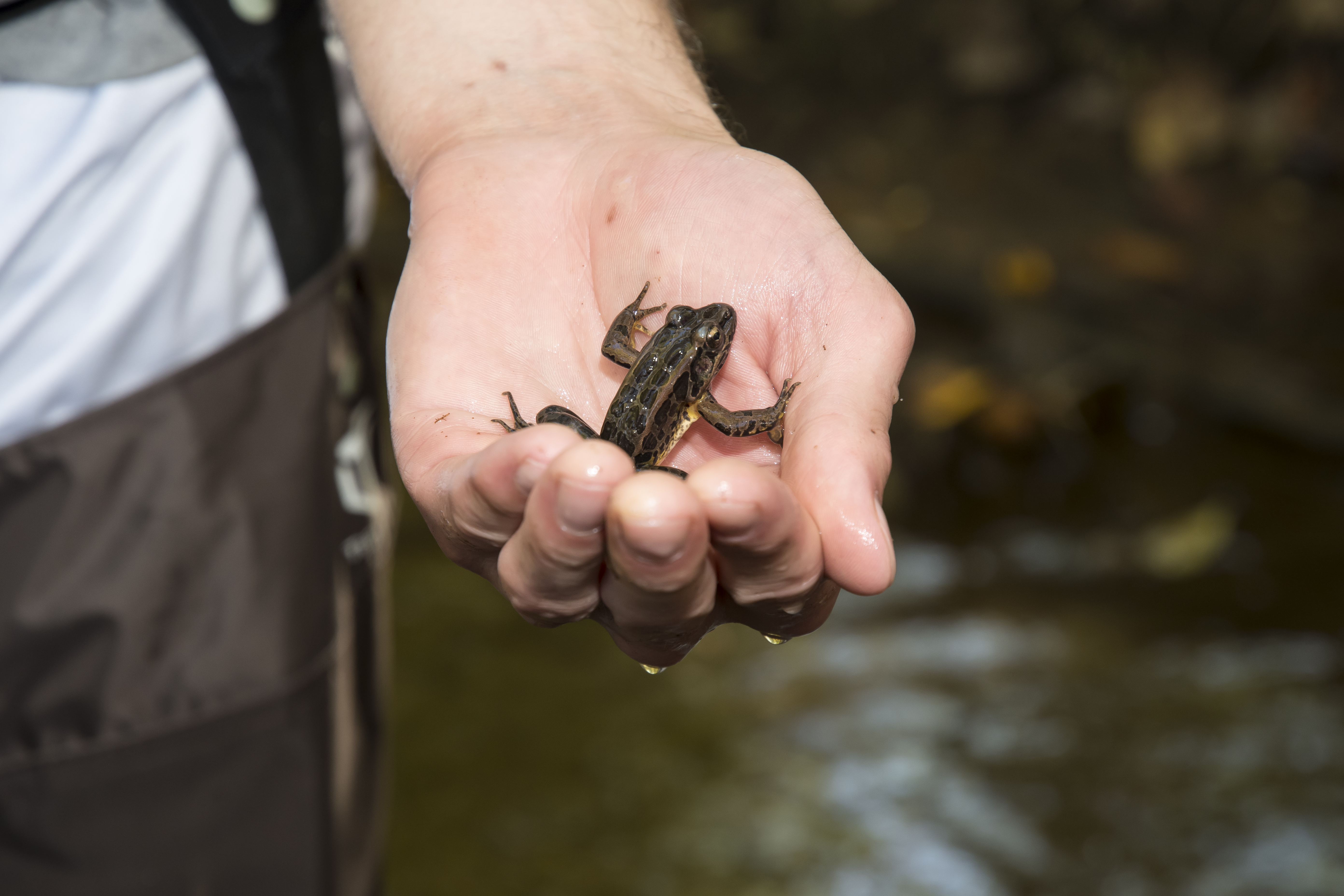Environmental Advantage
Through a new dual-degree partnership with Duke University’s Nicholas School of the Environment, Washington College environmental science and environmental studies majors can now earn their bachelor’s and master’s degrees in five years.

Environmental science and environmental studies students at Washington College will now have the opportunity to earn their bachelor’s and master’s degrees in five years, thanks to a new partnership between Washington College and Duke University’s Nicholas School of the Environment.
The agreement, known as dual-degree, allows qualified students to leave Washington College after their third year and enroll at Duke, where they can study for a master’s degree in either environmental management or forestry. After successfully completing their first year at Duke, they will be awarded their bachelor’s degree from WC. The new dual-degree program joins others at the College, including one in engineering with Columbia University, and in nursing and pharmacy with the University of Maryland.
“To me, in environmental science and studies, it’s about creating more opportunities for students,” says Charlie Kehm, chair of the Department of Physics and McLain Associate Professor of Physics and Environmental Science and Studies, who oversaw the development of the dual-degree program with Duke. “I love that they can come into Washington College and see themselves at the end of this really cool path. Parents like that too, because they want to know what’s the next step. So, I think these opportunities are really powerful in that way, because if nothing else, they give you some imagination to see what the possibilities are.”
Patrice DiQuinzio, Provost and Dean of the College, says the new arrangement illustrates the College’s determination to provide distinctive opportunities to its students, and it continues to build upon the College’s growing and energetic environmental program.
“Environmental science and studies is increasingly one of our most popular majors, and this will only enhance what is already a strong, exciting program,” DiQuinzio says. “It also lends force to the power and breadth of the liberal arts, which form the foundation of all we do here.”
Students who want to take advantage of the program will have to maintain a minimum 3.0 GPA, as well as earn at least a B in all undergraduate courses required for admission to the master’s programs at Nicholas. They will take all classes required to fulfill the major in either environmental science or environmental studies, with the exception of the Senior Capstone Experience, which will be waived, since they will be writing a thesis for their master’s degree.
Although the program takes effect immediately for incoming freshman in 2019, current freshmen and sophomores are also eligible to work toward the dual-degree. Leslie Sherman, co-chair of the Department of Environmental Science and Studies and W. Alton Jones Associate Professor of Chemistry, says the department will work to help current students attain needed requirements, as well as support incoming students to ensure they stay on track.
“I had envisioned environmental science students wanting to do the forestry program, because we don’t have forestry here,” Sherman says. “But our science students want to do environmental management too, which is exciting. This opens a clear pathway to this wonderful program at a fantastic school. And students who wish to finish their four years at Washington College and then seek graduate admission to Duke will also be able to take advantage of this relationship.”
The Nicholas School of the Environment is internationally known for not only its forestry and environmental management elements but also the Duke University Marine Lab. Two recent Washington College graduates, Anna Windle ’16 and Kelly Dobroski ’16, are currently enrolled at the Nicholas School in the environmental management master’s program, and Sherman is planning for them to return to campus to talk with interested undergraduates. Windle, studying coastal environmental management, in September won a highly competitive NOAA/North Carolina Sea Grant fellowship to assess oyster reef health.
For more information about Washington College’s Environmental Science and Studies program, visit https://www.washcoll.edu/departments/environmental-science-and-studies/
For more information about Duke University’s Nicholas School of the Environment, see https://nicholas.duke.edu/ .